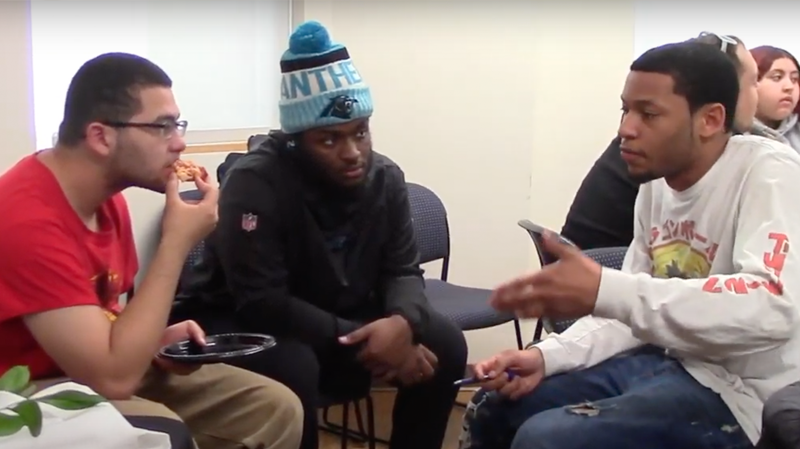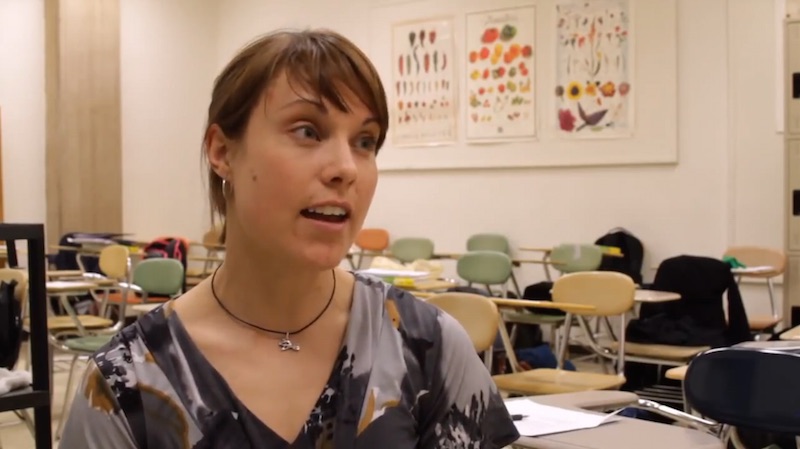Community-Based Learning
COMMUNITY-BASED LEARNING (CBL)Community-Based Learning is a powerful teaching approach that allows students to engage in hands-on activities that address real-life challenges faced by communities. By partnering with local organizations, faculty can provide an enriching learning experience that benefits students and helps them to see themselves as community contributors. This mutually beneficial relationship between the academic and local communities can foster a deeper understanding of societal issues and inspire students to become agents of change. Join us in embracing this impactful teaching method that empowers students to impact the world around them positively.
What is a Community-Based Learning Course?
By taking a Community-Based Learning Course, you'll gain valuable knowledge and the opportunity to create and implement projects or conduct research in collaboration with a local community organization. This hands-on experience will provide insights and skills to help you stand out in your field. Don't miss out on this chance to make a real difference in your community while advancing your education.
Benefits of Community-Based Learning (CBL)
This program provides students with:
- a unique opportunity to broaden their horizons and reach their full potential. This is done by engaging in hands-on coursework that supports the needs of a community organization.
- a deepening of their understanding of the course content and objectives while also gaining valuable work experience in their field of study.
- a potentially long lasting community relationships that could lead to internships, jobs, and future careers while also strengthening their résumé and transfer application.
- information about how concepts in texts are revealed (that a-aha moment) in our lived communities
- encouragement to be active change-makers in their community.Choose CBL AND, unlock your potential, and positively impact your community!
Choose CBL AND, unlock your potential, and positively impact your community!
FACULTY FELLOWS PROGRAM
This professional development opportunity for faculty exists to support the creation of a CBL component to a new or existing course. At the core of this work, projects (big and small) emanate from community needs and knowledge while also being guided by course materials. Self reflection of all members of the process (community, faculty and students) becomes critical to the development of this work. Faculty receive a course reassignment or stipend to develop a community based learning project for a course in a cohort setting over the course of year. Click here for an application.
CONTINUING FACULTY FELLOWS PROGRAM
A professional development opportunity for former CBL faculty fellows who want to engage with more intentionality on CBL using a culturally responsive and anti-racist pedagogical lens. Culturally responsive pedagogy (CRP) is a teaching strategy that engages faculty to self-reflect, engage, be inclusive and culturally humble in revising not just what they teach, but also how they teach and advise students. To be actively anti-racist means to understand and work against racism as a systemic problem that can be confronted, challenged and dismantled with action. Faculty are asked to investigate the ways in which their teaching may privilege some forms of knowledge and some student communities, while ignoring, devaluing and/or stigmatizing other ways of knowing or students. This Title III funded initiative provides space for CBL faculty to share personal and professional experiences, questions, and resources. Click here for the Continuing CBL Fellows application.
Community-Based Learning is an educational initiative in which students complete a project in the community that directly relates to the objectives of a course and meets the needs of the community-based organization.
COMMUNITY-BASED LEARNING COMMUNITY PARTNERS
Projects are created collaboratively with a community partner - any project is possible! Here are just a few of our community partners.
- Wistariahurst
- Nuestras Raíces
- Voices from Inside
- Holyoke Media
- Holyoke Boys & Girls Club
- Girls INC
- The Care Center
- Reach Out & Read
- Springfield Schools Volunteers
- MSPCC/Halo Center
- Western MA Elder Care
- Geriatric Authority
- Kate's Kitchen/Margaret's Pantry
- Gandara Center
- The Trustees of Reservations
COMMUNITY-BASED LEARNING PROJECTS
Some examples of HCC Community Based Learning projects done at HCC:
- A Spanish heritage speakers course that has students learn to podcast and create a podcast using Spanish and English on topics related to Latinidad
- An Earth Science course in which students test CT River waters for nitrates and report/present their findings to the Connecticut River Valley Watershed Council
- An English and human services Learning Community course in which students learn about writing as a tool for healing and self-discovery, and then work with teen mothers studying poetry at the Care Center
- A web design course during which students design new websites for community-based organizations in Holyoke
- An English and sociology Learning Community on teen pregnancy in which students learn about poetry alongside teen mothers studying at the Care Center, and design an assessment tool for a teen pregnancy prevention program at the Holyoke Boys & Girls Club
- A robotics course in which students instruct the youth at the Holyoke Boys & Girls Club in the designing, building, and programming of robots
- A nutrition course in which students create an activity, a healthy recipe, and content for a lesson plan that teaches a nutritional concept to children at the Holyoke and Westfield Boys & Girls Clubs
- A marketing course in which students break into teams. One team completes a much-needed marketing plan/strategy for developing a new retail store run by Providence Ministries, the other team creates a much-needed survey for the Holyoke YMCA
- A nursing course in which students partner with the Holyoke Health Center's initiative that links literacy and health under Reach Out & Read
- An online anthropology course where students gain hands on experience with oral history and participate in building an archive of Holyoke resident and worker experiences during the COVID pandemic
Here are some of the articles written about Faculty CBL projects, formerly Service Learning. Faculty, take a look and envision your next CBL idea coming to life! Students, join a CBL course - you will not regret it.
- Itsy Bitsy More (Nov 2023)
- Planting Ideas (Sept 2023)
- On Display (April 2023)
- Spring Cleaning (March 2023)
- Screen Time (Jan 2023)
- All Hands on Deck (Dec 2022)
- Botany on the Beat (Oct 2022)
- Celebrating 75 (May 2022)
- Civic Minded (Jan 2022)
- Activist Scholar (Mar 2021)
- Caterpillar Action (May 2019)
- Engaged Scholar (Feb 2019)
- Mother of Inspiration (Apr 2017)
- Future Teachers Test Lessons (Nov 2016)
Community-Based Learning Practicum
Community Based Learning Practicum (SSN 102) is a one-credit course available to students that can be added on to any course with a service-learning component. Faculty receive an added credit to their course load, and students pay for the extra credit. Students interested in this opportunity should meet with CBL coordinator to discuss this opportunity.
HON Project: Community Based Learning option
HCC students can sign up to do a community based learning project as a 1 credit HON 201 course option. More information can be found on the Honors website (www.hcc.edu/honors) subpage titled Honors Projects. For students interested in this, please send an email to schedule a meeting with the CBL coordinator (cbl@hcc.edu) and the Honors Program coordinator (honorsprogram@hcc.edu).
*Note that in January of 2024, the Service Learning Program changed its name to Community Based Learning. The change is meant to acknowledge that it is our mutually beneficial relationship with the community (organizations) that makes this work possible and rewarding for students. Instead of centering the student learner as a service giver, we are centering the relationship between community and student by adding community to the name.





